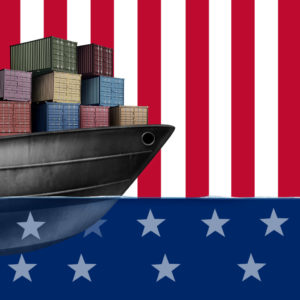News & Insights
Temporary 90-Day Postponement of Duties, Fees and Taxes Announced for Importers Encountering Significant Financial Hardship
Importers suffering significant financial hardship in light of the global pandemic may have their duties, fees and taxes on entries of imported merchandise made in March and April postponed for a period of 90 days. On April 18th, President Trump signed an Executive Order authorizing the Secretary of the Treasury to temporarily extend deadlines for the estimated payments of duties by U.S. importers. On April 19th, Customs and Border Protection (CBP) and the Treasury Department issued a Temporary Final Rule postponing the deadline for payment for the deposit of certain estimated duties, taxes, and fees on imported merchandise entered in March or April 2020 for a period of ninety (90) calendar days for importers experiencing significant financial hardship due to COVID-19. CBP also issued guidance on the temporary rule as well as payment instructions in two CSMS messages on April 19th. The following provides a detailed summary of the temporary postponement.
CBP and Treasury Department’s Temporary Rule
The temporary rule acknowledges that many importers are encountering significant financial hardship as they are receiving diminished or no revenue while still incurring costs, their operations may have been fully or partially suspended in March and April, and they are experiencing difficulty authorizing payments for duties, taxes and fees as employees responsible for approving the release of funds are having difficulty getting to work or are having technical issues with working remotely. The rule amends 19 C.F.R. Section 24.1a of the Customs Regulations, and specifies that—
- The postponement applies to formal entries of imported merchandise entered or withdrawn from warehouse for consumption in March or April 2020.
- No interest that would otherwise accrue upon such estimated duties, taxes and fees will accrue during the 90-day postponement period.
- Estimated duties, fees and taxes that have already paid on such entries will not be returned to importers.
- The temporary postponement does not apply to duties, fees and taxes assessed under trade remedies (i.e., antidumping duties, countervailing duties, and tariffs assessed under Section 201, Section 232, and Section 301)—accordingly, the rule states that “CBP anticipates that importers will file separate entries when a shipment contains both merchandise that is eligible for temporary postponement and merchandise that is ineligible (because of the above-specified trade remedies).”
- The temporary postponement also does not apply to deadlines for the payment of other debts to CBP (e.g., payment of bills for duties, fees and taxes and interest determined to be due upon liquidation or reliquidation), deadlines for the payment of fees authorized per 19 USC 58c (except for MPF and dutiable mail fees), or deadlines for the payment of any penalty or liquidated damages to CBP.
In order to qualify for the temporary postponement, an importer must demonstrate a significant financial hardship. Specifically—
- The importer’s operation must be fully or partially suspended during March or April 2020 due to orders from a competent governmental authority limiting commerce, travel or group meetings because of COVID-19; and,
- As a result of such suspension, the gross receipts of such importer for March 13th – 31st or April 2020 are less than 60% of the gross receipts for the comparable period in 2019.
No additional documents are required to be filed with CBP to demonstrate an importer’s eligibility for the temporary postponement; however, the importer must maintain documentation as part of its books and records establishing that it meets the requirements for relief.
CBP’s CSMS #42423171 and #42421561
On April 19th, CBP also issued CSMS #42423171 providing guidance on the 90-day temporary postponement. CBP stated that importers seeking to postpone the payment of duties, fees and taxes must ensure that their entries do not include merchandise that are subject to antidumping duties, countervailing duties, or tariffs under Sections 201, 232 and 301. For example, CBP stated that an entry filed with merchandise subject to antidumping duties and merchandise not covered by any antidumping duty order will not be eligible for the 90-day postponement—in such cases, CBP advises that two separate entries should be made. The CSMS provided the following payment timeframes:
- Estimated duties, fees and taxes paid on single pay basis or Daily Statement may be postponed up to 90 days from the due date (i.e., if the original due date was April 30, 2020, the 90-day postponement date will be July 29, 2020.
- Estimated Internal Revenue Tax paid via the deferred tax schedule may be postponed up to three months from the payment due date (i.e., if the original due date was April 29, 2020, the 3-month postponement date will be July 29, 2020).
- Estimated duties and fees paid via Periodic Monthly Statement (PMS) may be postponed up to 3 months, as defined by the 15th working day of the third month (i.e., if the original due date is April 21, 2020, the 3-month postponement date will b July 22, 2020).
Key Take-Away’s for Customs Compliance
Importers will need to work closely with their customs brokers to ensure that separate entries are filed where their shipments contain both merchandise that is eligible for the temporary postponement and merchandise that is ineligible (i.e., subject to AD/CVD, Section 201 tariffs, Section 232 tariffs, Section 301 tariffs). In addition, SMS #42423171 specifically states that CBP may conduct a review of the importer’s documentation at a future date to confirm that it was in fact eligible for the 90-day deferment of duties, fees and taxes under the criteria set forth above. Therefore, it is crucial for importers to confirm that they qualify for the temporary postponement and are maintaining documents and records that demonstrate their eligibility. Further, importers are responsible for scheduling their payments in accordance with the timeframes described above. A second CSMS (CSMS #42421561) was also published on April 19th, providing payment instructions for entries that qualify for the temporary 90-day postponement period.
If you have any questions relating to the Temporary Final Rule or other international trade-related issues, please contact us.
News & Insights

Federal Maritime Commission’s Proposed Rules and Direct Final Rule Will Have Significant Impact on Carriers and Forwarders
At its meeting on September 26, 2019, the Federal Maritime Commission (“FMC”) issued two proposed rules and a Request for Comments on a Direct Final Rule that may significantly affect ocean transportation intermediaries (“OTIs”), such as vessel operating common carriers

U.S. Customs and Border Protection Provides Guidance on Applicability of Section 301 Tariffs to Imported Retail Sets
In response to questions on Section 301 posed by the National Customs Broker and Forwarder Association of America (“NCBFAA”), U.S. Customs and Border Protection (“CBP”) recently stated that— The Section 301 tariffs on Chinese-origin goods will not apply to articles


